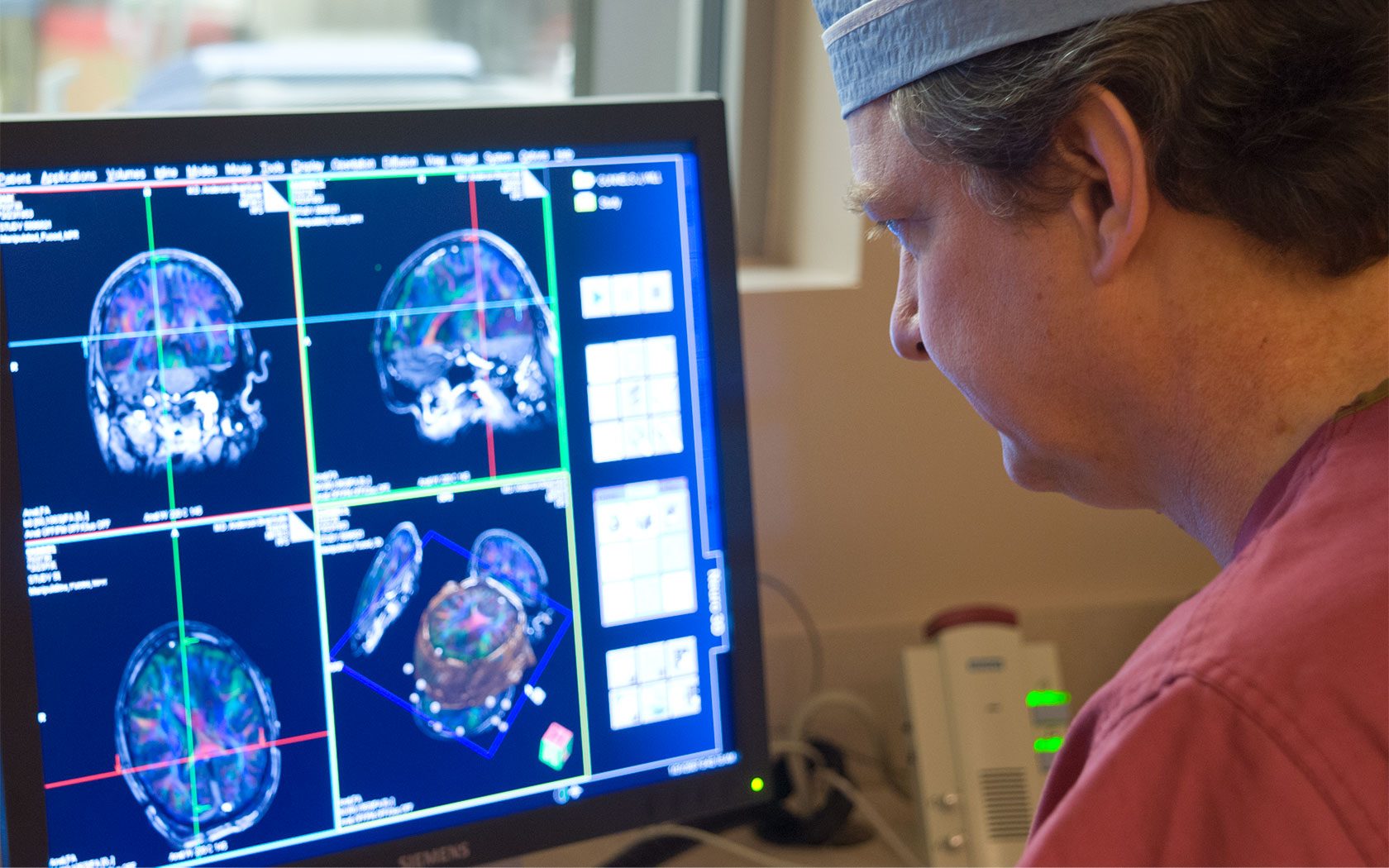March 12, 2015
Research may show why some brain tumors resist treatment
BY Ron Gilmore

Scientists at MD Anderson Cancer Center may have discovered why some brain cancer patients develop resistance to standard treatments including radiation and the chemotherapy agent temozolomide.
Simply put, it’s all in their DNA. The discovery could open up new avenues for treating certain kinds of brain cancer.
DNA, the body’s essential storehouse for genetic information, can do marvelous things such as passing on hereditary strengths and playing a key role in virtually every bodily function. In the case of glioblastoma, the most common and aggressive type of glioma or brain cancer, it can also allow the disease to progress more quickly when it is “enhanced,” allowing damaged or mutated cancer cells to repair themselves.
“A major obstacle to effective treatment is acquired resistance to treatment,” said Wei Zhang, Ph.D., professor ofPathology. “Enhanced DNA repair can allow these cancer cells to survive, contributing to resistance and tumor recurrence. We have identified Akt3 as having the ability to robustly stimulate glioma progression.”
akt蛋白被称为激酶调节cell signaling. They’re involved in many bodily processes such as cell growth, cell death and tumor growth. Akts are thought to contribute to the development and progression of many cancers (prostate, breast, liver, colorectal and others). One form of this protein, Akt3, appears to be especially prevalent in the brain.
Zhang’s findings, which recently were published inProceedings of the National Academy of Sciences, describe his team’s study results, which show how Akt3 activates key DNA repair pathways.
The research shows that Akt3 is tied to DNA’s “repair panel,” and somehow boosts activation of DNA repair proteins, leading to increased DNA repair and, subsequently, to cancer treatment resistance.
“This activation led to enhanced survival of brain tumor cells following radiation or treatment with temozolomide,” said Zhang. “Our work has potentially broad application to multiple cancer types in which Akt3 is expressed. Blocking this pathway may help prevent or alleviate therapeutic resistance resulting from enhanced DNA repair.
